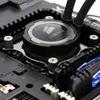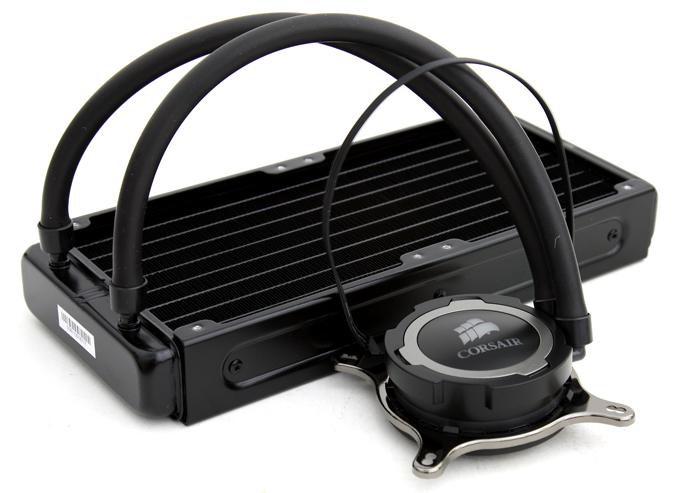Article
Introduction
Today we test and review the Corsair H105 liquid cooler. Corsair has been releasing a massive amount of Liquid coolers lately, we already reviewed the Corsair H110, H100i, H60 liquid coolers but yeah, we just had to share the results on their all new All-in-One liquid cooling solution Hydro H105 as well. The new 240mm liquid cooling kit features a 240 mm radiator that is thicker than normal, with a 38 mm thickness. As comparison the H100 uses a 27mm tick radiator. That should help you dissipate some extra heat from your processor. With cool looks and very silent operation we can see this product ending up in a lot of PC builds alright.
Compared to the last generation of Hydro products Corsair changed the fan, tubing, pump and cooling blocks sizes. The H105 is a dual 120mm fan based liquid cooling solution that offers cooling performance at the level of the more expensive heat-pipe coolers in terms of cooling performance, as really it offers excellent performance for the money whilst remaining very silent. The Corsair Hydro H105 series once again is easy on the eyes and has a relatively simple to manage installation, the product is compatible with AMD Socket AM2, AM3, FM1 and FM2 any modern AMD CPU really. All current Intel socket formats are covered too, so whether you have a LGA1155, LGA1156, LGA1366 or LGA2011 motherboard this product will fit / can be used.
Corsair mounted two 120 mm SP120L fans that can spin at a programmable speed ranging from 800 RPM to 2700 RPM. They can push up to 73 CFM, make up to 37.3 dBA of noise, and have a static pressure of 3.9 mm of water.
So let's have a peek at the Corsair H105 and then head onwards into the review where we'll put it to the test with a Core i7 3770K processor, which we'll overclock at two voltage levels as well to see how well this cooling solution can absorb and exhaust heat.
We feel that the product is just a great product in combo with the severe hotness that are Sandy/Ivy Bridge and Haswell based processors.


